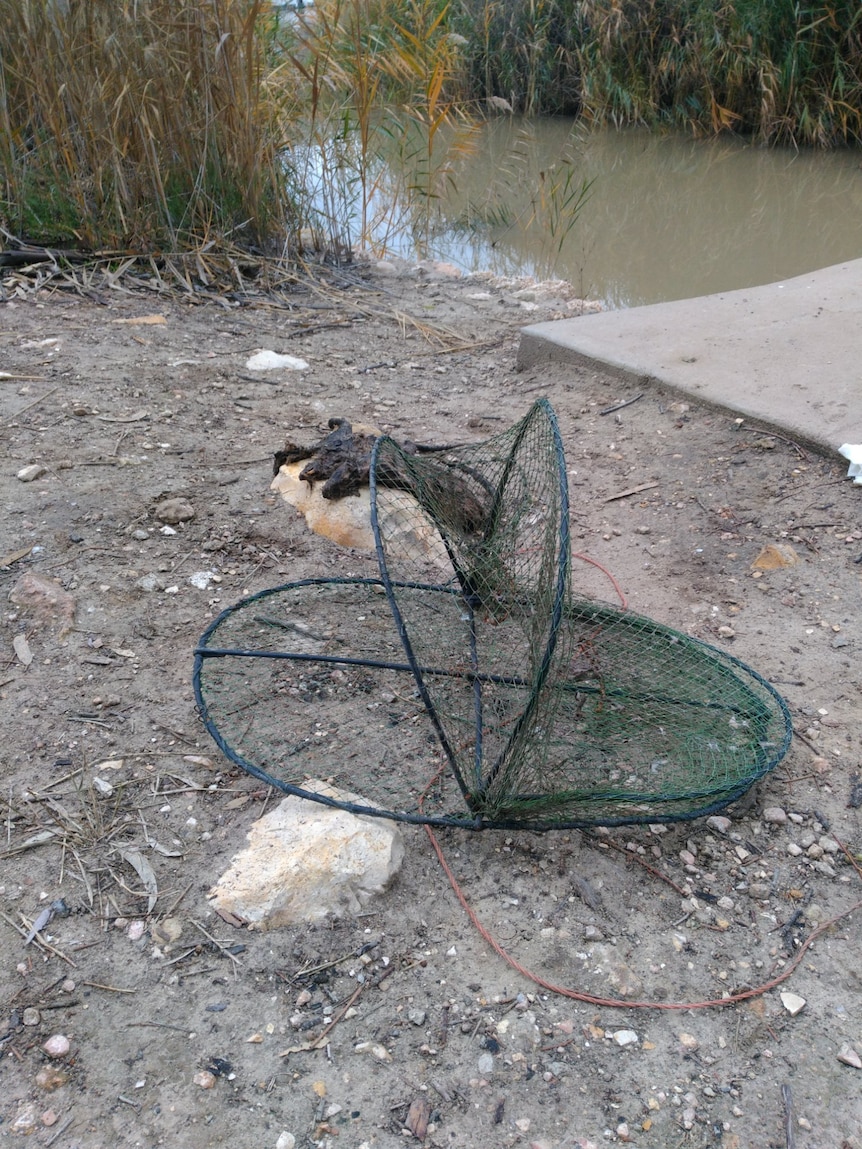The South Australian Primary Industries Minister says the future of recreational fishing using opera house nets in the state is in limbo.
Key points:
- SA Primary Industries Minister Clare Scriven says she’ll make a decision about opera house nets in the coming months
- Environmentalists says native animals can get caught in the nets if left unsupervised
- SA’s peak recreational fishing body wants people to use them responsibly
Flooding in the River Murray has led to a boom in yabby numbers, with opera house nets the most popular way for recreational fishermen to catch the crustacean.
While use of the nets is legal in South Australia, environmentalists in the Riverland are concerned that native animals, such as the water rodent Rakali, could get trapped by them.
The nets are already banned in New South Wales, Victoria, the ACT and Tasmania.
Under the previous State Liberal Government, the Minister’s Recreational Fishing Advisory Council (MRFAC) recommended that opera house nets be phased out by the end of June this year.
However, the state Labor government reinstated RecFish SA as the peak industry body, instead of MRFAC, leaving the decision about the future use of the nets uncertain.
Primary Industries Minister Clare Scriven said her department was still working out the next step with RecFish SA.
“I am awaiting further advice on the phase out of opera house style nets and expect to be able to make a decision in coming months,” she said.
Ban could reduce risk to wildlife
RecFish SA executive officer Asher Dezsery said other nets on the market were as effective as opera house nets, and allowed air-breathing animals to escape.
“People have a lot of [opera nets] in their shed and at their shack,” he said.
“But slowly we will get there and these more sustainable and just as efficient methods will be phased in.”
But Mr Deszery acknowledged people should use these nets responsibly.
The sentiment is shared by Riverland environmentalist Andrew Walladge, especially as recent flood waters have brought with them an influx of yabbies, a food source of the rakali.
“It’s critically important the opera house nets are not left out overnight or for any length of time,” he said.
“You know, 10 or 15 minutes is usually plenty to catch a feed of yabbies.”
Riverland tackle and fishing store owner, John Cockshell, said the opera net was the most sought after by shoppers.
“The beauty of the opera house nets is you can put them out and go back the next morning,” he said.
“It’s driven by consumer wants at this stage, they know they can still use them so they still want them in preference to the other nets.”
Mr Cockshell said while concerns regarding animal deaths from being trapped in opera house nets were fair, they were a rare occurrence.
“A lot of that could be eliminated by making the ring size smaller in the opera house,” he said.
Mr Cockshell said any plan to ban the nets, should consider giving retailers and fishermen plenty of notice.
“If we knew they were going to be phased out by June for certain…. that would make life a lot easier,” he said.




